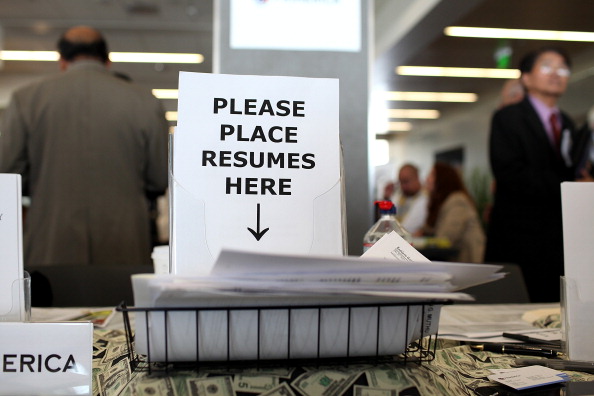Five Steps To Take If You’re Unemployed

Justin Sullivan / Getty Images
This week, DCentric is examining D.C.’s unemployment disparity in the “Division of Labor” series. One major factor contributing to high unemployment rates in some D.C. neighborhoods is not having the right skill set.
But despite the obstacles to getting hired, there are some steps you can take if you’re on the job hunt. Here are five things to consider:
File for unemployment and look into other available resources.
If you’re recently unemployed, first find out if you qualify for unemployment compensation. You can apply online or in person at three career centers run by the D.C. Department of Employment Services. They are located in the Northwest, Northeast and Southeast quadrants of the city.
Even if you don’t qualify for unemployment compensation, consider visiting one of the career centers. They provide career counseling, resume writing help, job placement services and more. The city has five satellite centers, in addition to the three main offices. Find more information on locations and hours here.
Assess yourself.
Before you begin hunting for jobs, conduct a self-assessment, says career counselor Melissa Fireman, CEO of Washington Career Services.
“It’s for them to really understand themselves. ‘Who am I? Why do I like to work? Where do I want to work?’ It’s just gaining clarity. If they don’t know those answers, then it’s very hard for them to present themselves,” Fireman says. Having answers to those questions will help you to identify how you’re different from other job seekers. It will also make you appear more confident.
The self-assessment process can also help you figure out where you want to be in the future. List your credentials and then look up what’s needed to qualify for your dream job using the U.S. Department of Labor’s website O*NET.
Get online.
These days, not having an email account can hurt your chances of being hired. Employers are increasingly asking job candidates to apply online.
Learning how to search for jobs online is also an important step, Fireman says. Many companies are now posting job listings directly on their websites, so don’t limit yourself to just searching career websites.
If you don’t have computer access, visit a D.C. Public Library, but plan carefully, as you’re limited to 70 minutes of use at a time, depending if people are waiting. There are also numerous resources for help writing resumes and cover letters.
Network as much as possible.
Fireman recommends reaching out to 10 to 20 networking contacts a week, either online or in person. Contact old friends, former colleagues and community organizers.
Treat your job search as a job.
Develop a routine in which you’re searching for a job every day, Fireman says.
“This needs to be your main priority,” she says. “It requires as much as your health or your family.”
If you’ve been unemployed for a long time and can afford to do so, consider volunteering in a field related to the job you want, Fireman advises.
Finally, try to be positive, even though it can be difficult. “Think of it as an adventure, an opportunity,” Fireman says. “People who are hiring want to see positive, upbeat potential employees.”
-
Brimstone
-
Little Black Duck




